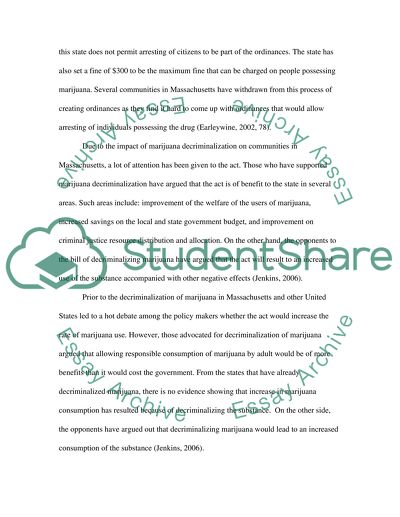Cite this document
(“Decriminalization Of Marijuana and It€™s Positive and Admission/Application Essay”, n.d.)
Decriminalization Of Marijuana and It€™s Positive and Admission/Application Essay. Retrieved from https://studentshare.org/miscellaneous/1560197-decriminalization-of-marijuana-and-it83648482s-positive-and-negative-impacts-it-would-have-on-the-state-of-massachusetts
Decriminalization Of Marijuana and It€™s Positive and Admission/Application Essay. Retrieved from https://studentshare.org/miscellaneous/1560197-decriminalization-of-marijuana-and-it83648482s-positive-and-negative-impacts-it-would-have-on-the-state-of-massachusetts
(Decriminalization Of Marijuana and It€™S Positive and Admission/Application Essay)
Decriminalization Of Marijuana and It€™S Positive and Admission/Application Essay. https://studentshare.org/miscellaneous/1560197-decriminalization-of-marijuana-and-it83648482s-positive-and-negative-impacts-it-would-have-on-the-state-of-massachusetts.
Decriminalization Of Marijuana and It€™S Positive and Admission/Application Essay. https://studentshare.org/miscellaneous/1560197-decriminalization-of-marijuana-and-it83648482s-positive-and-negative-impacts-it-would-have-on-the-state-of-massachusetts.
“Decriminalization Of Marijuana and It€™S Positive and Admission/Application Essay”, n.d. https://studentshare.org/miscellaneous/1560197-decriminalization-of-marijuana-and-it83648482s-positive-and-negative-impacts-it-would-have-on-the-state-of-massachusetts.


